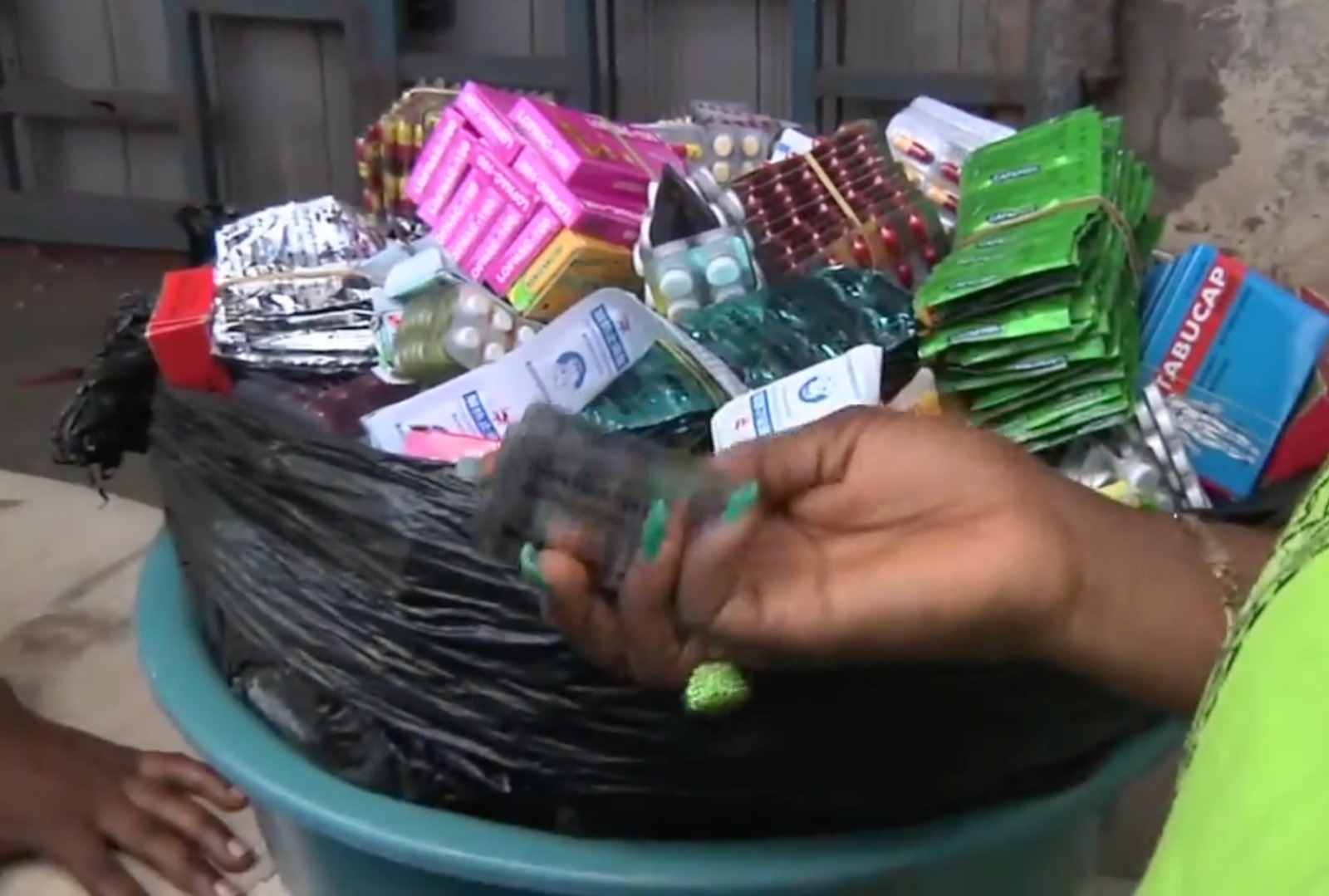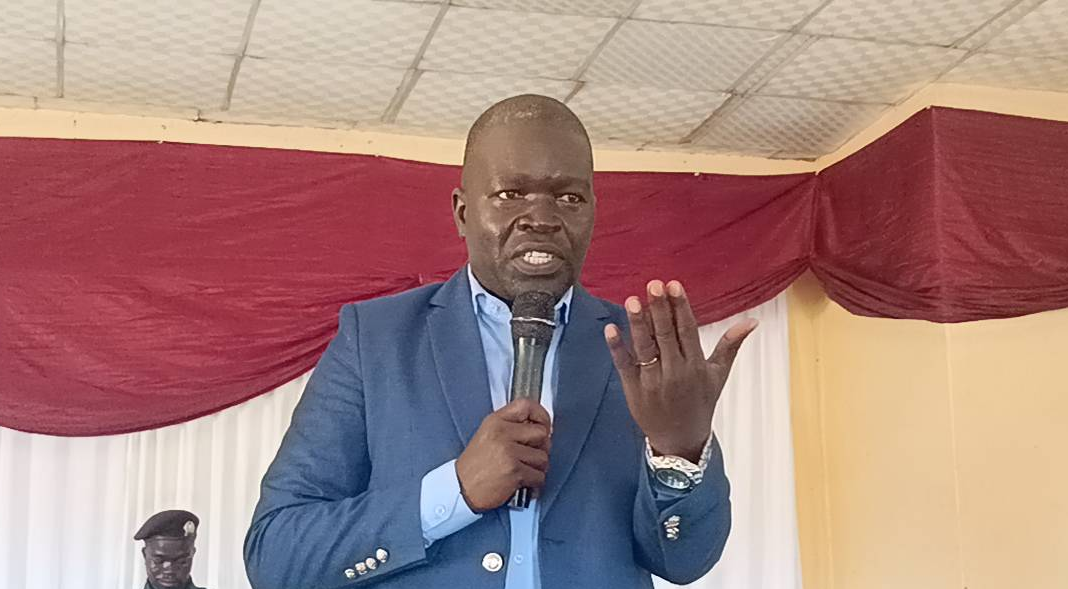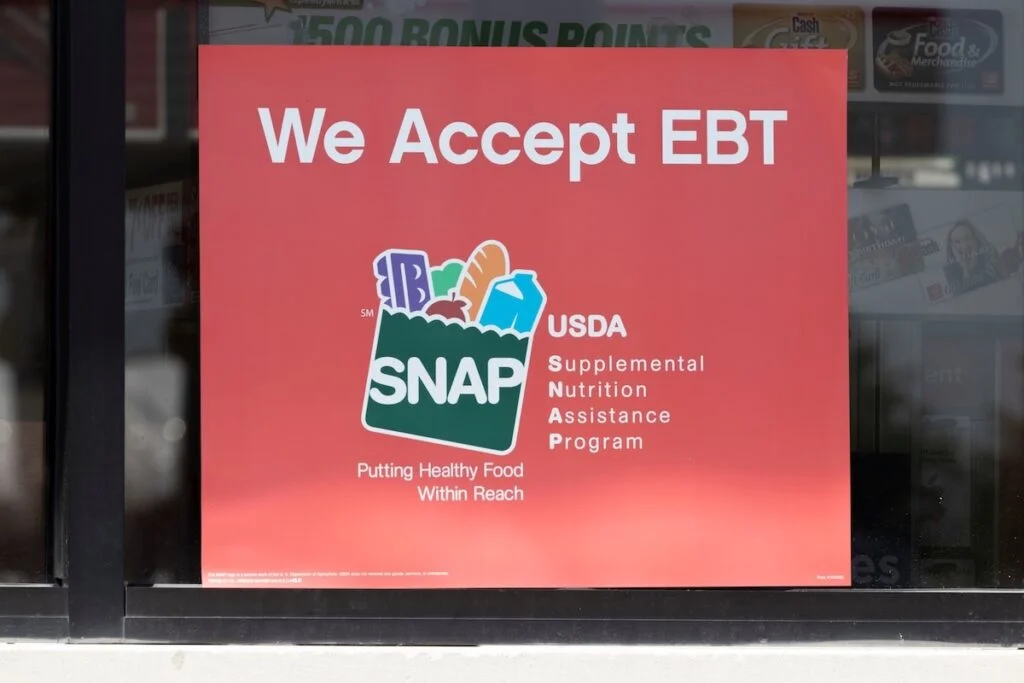Copyright asaaseradio

By: Caleb Ahinakwah At a small chemist in Dansoman, 34-year-old Ama Mensah thought she had found a quick fix. Each time the burning pain of a urinary tract infection returned, she walked into the shop, described her symptoms, and left with a handful of antibiotics. Sometimes it was ciprofloxacin, other times amoxicillin, sold in broken blister packs because that’s all she could afford. The relief always came quickly, until one day it didn’t. “I ended up at Korle-Bu,” she recalls softly. “The doctors told me the bacteria in my body had become resistant. What I thought was saving me money had actually made me sicker.” Ama’s story is a warning echoing across Ghana. From bus terminals in Madina to market stalls in Kumasi, antibiotics are being misused and abused. People buy them without prescriptions, take incomplete doses, or share leftovers with family and friends. Now, the consequences are spilling into hospitals, where doctors face a growing wave of infections that no longer respond to standard treatments. The hidden threat behind everyday pills Across Ghana, antibiotics have become as common as paracetamol. From treating coughs, sore throats, to skin infections, diarrhoea, and some sexually transmitted infections, many people view them as cure-all medicines easily bought at any corner pharmacy or from hawkers shouting drug names in traffic. Yet beneath this convenience lies a growing threat that public health experts call one of the greatest global dangers of our time: antimicrobial resistance (AMR). Antibiotic resistance occurs when bacteria evolve to survive drugs meant to kill them. Each time an antibiotic is misused, taken for the wrong illness, at the wrong dose, or stopped too soon, the surviving bacteria learn to adapt. Over time, the medicines that once cured simple infections lose their power. In Ghana, this problem has quietly reached alarming levels. A 2022 study by the Ghana Health Service found that more than half of common bacterial infections no longer respond to first-line antibiotics. Drugs like tetracycline, amoxicillin, and penicillin — once considered reliable — are failing in hospitals from Accra to Tamale. “Resistance levels are very high, especially for infections like typhoid, tuberculosis, and urinary tract infections,” says Dr Jonathan Caleb Akuaku, a medical officer in Accra. “In some cases, 70 to 80 per cent of bacteria we test are resistant to the drugs we have. That means treatment options are running out.” Globally, the World Health Organisation warns that by 2050, drug-resistant infections could cause 10 million deaths every year if current trends continue. But in countries like Ghana, where antibiotics are freely sold without prescriptions, the danger is even greater. Weak enforcement, economic hardship, and limited access to healthcare make self-medication a daily reality for millions, turning pharmacies and trotro bus stations into the frontlines of a slow, invisible war against bacteria. The Drivers of Resistance — The Culture of Self-Medication One sunny afternoon, in Madina, 29-year-old Faustina Amankwah remembers juggling her crying child and a bag of medicines she had bought from a “trotro” hawker. Her five-year-old son, Kwame, had been coughing for days, and the nearest hospital was miles away. “The woman selling the drugs told me the syrup works fast for children,” she says. “Sometimes I bought Augmentin or other antibiotics. I didn’t think it was dangerous — I just wanted my child to get well quickly.” But over time, the quick fixes stopped working. When Kwame’s fever and chest infection worsened, Faustina finally took him to the Ridge Hospital. There, doctors confirmed what she never imagined: the bacteria in his body had become resistant to the very medicines she had trusted. “I was so hurt,” she says quietly. “I thought I was helping him, but I was making him weaker.” Her story reflects a nationwide habit rooted in accessibility and cost. Across Ghana, pharmacies, chemical shops, and street vendors sell antibiotics freely often without prescriptions. Many Ghanaians bypass doctors altogether, driven by poverty, distance, and a belief that antibiotics can cure almost anything. Dr. Jonathan Caleb Akuaku explains that self-medication has become “almost cultural.” In communities, people recommend antibiotics to one another the same way they share home remedies. “Someone feels feverish, and a friend says, ‘Oh, take amoxicillin — it worked for me last time.’ That’s how resistance spreads. Each misuse gives bacteria a chance to adapt.” The problem, he adds, is compounded by weak diagnostic systems. In many health facilities, lab equipment is broken or outdated, forcing doctors to prescribe antibiotics “blindly,” hoping one will work. In this environment, trial-and-error prescribing meets unregulated drug sales — a dangerous mix that accelerates resistance. “Even doctors contribute unintentionally,” Dr. Akuaku admits. “When you don’t have proper lab results, you experiment. But in the community, people do the same thing without any knowledge at all.” Behind these habits lies a deeper social issue: trust and convenience. Patients often find hospitals overcrowded, consultations slow, and medicine costs high. Medication vendors, by contrast, offer quick service, sympathy, and flexibility, selling just a few tablets for as little as five cedis. But every shortcut taken in the name of saving time or money chips away at the effectiveness of life-saving drugs. The Expert Lens — Voices from the Frontlines Doctors are fighting battles they used to win easily. Infections once treated with a single round of antibiotics now require stronger combinations, longer hospital stays, and far higher costs. According to Dr Akuaku, “common antibiotics like tetracycline and penicillin are no longer effective. For some bacteria, up to 80 per cent of the strains we see are resistant to at least one major drug.” He adds that infections such as tuberculosis, pneumonia, typhoid, and urinary tract infections — once manageable — are now among the most difficult to treat. He recalls a recent case that still haunts him: “A middle-aged woman came in with a small scratch on her leg. She had been self-medicating with antibiotics from a pharmacy because she thought it was just a simple infection. By the time she reached the hospital, she was in septic shock. The bacteria had become resistant to almost every drug available. We tried everything — ICU, high-level antibiotics — but she didn’t survive.” These tragedies are not isolated. Each resistant infection adds new pressure on an already strained healthcare system. Ghanaian families often spend weeks in hospitals, paying for expensive laboratory tests and multiple rounds of antibiotics that may not work. According to Dr. Akuaku, the average cost of treating resistant infections can rise by $1,000 to $1,300 per patient, a burden that pushes many households deeper into debt. Globally, the World Bank estimates that by 2050, 24 million people could be pushed into extreme poverty due to the cost and lost productivity associated with antimicrobial resistance. While doctors like Akuaku face the crisis in hospitals, pharmacists see it unfolding at the community level. Dr. Selorm Amevor, a pharmacist in Accra, describes the daily dilemma behind the counter. “We insist on prescriptions before selling antibiotics,” he says. “But people get angry. They say, ‘Why can’t you just sell it to me? The shop down the street will.’” He explains that not all pharmacies uphold the same ethical standards. Some owners pressure their staff to sell antibiotics freely to boost profits. “When business is slow, they remind you that sales matter more than prescriptions,” Dr. Amevor says. “It puts pharmacists in a difficult position — do you protect public health or please your employer?” Even more worrying, unlicensed street peddlers — from trotro hawkers to market vendors — openly sell antibiotics alongside painkillers and herbal tonics. Some even market them as miracle cures for everything from malaria to menstrual pain. In 2019, a Food and Drugs Authority (FDA) study found that nearly 90 per cent of medicines on sale in informal markets were unregistered or uncertified — yet these vendors continue to operate with little consequence. “Every time someone buys antibiotics from a hawker,” Dr. Amevor warns, “we risk creating the next strain of bacteria that no drug can cure.” The Broken System — Regulatory and Diagnostic Failures Despite clear laws requiring prescriptions for antibiotics, the rule is rarely enforced. Pharmacies, chemical sellers, and even unlicensed street hawkers openly sell powerful drugs with little fear of sanction. Dr. Jonathan Caleb Akuaku says the problem starts with weak institutional capacity. “We have good policies on paper, but enforcement is almost nonexistent,” he notes. “The Pharmacy Council and the FDA cannot inspect every shop or market stall. So people exploit the gaps.” A walk through Accra’s bustling bus terminals or marketplaces makes this clear. From Kaneshie to Makola, hawkers weave through traffic and crowds, waving packets of antibiotics and shouting their supposed benefits. “These drugs cure 1,000 diseases — no side effects!” one vendor boasts, confirming a 2019 FDA finding that nearly nine in ten medicines sold informally are uncertified. Yet such sales continue daily, in plain sight of authorities. Even in licensed pharmacies, the system falters. Dr Amevor, the pharmacist, admits that financial incentives often override professional ethics. “Some owners push for higher sales instead of safe practices. When profits dictate behaviour, public health loses.” But regulation is only part of the problem. Inside many hospitals, doctors face another critical barrier: broken or underfunded laboratories. Without reliable lab results, clinicians often prescribe antibiotics “empirically” — essentially guessing which drug might work. When the guess is wrong, the bacteria survive and evolve, spreading resistance further. “Sometimes our diagnostic machines have been down for months,” Dr Akuaku says. “We send samples for culture and sensitivity tests, but the process is slow or incomplete. So doctors prescribe based on experience, not evidence. It’s risky, but we have no choice.” The bureaucratic delays in fixing or replacing equipment only worsen the situation. Repair requests can take weeks or months to process, while patients continue receiving ineffective treatments. In rural areas, the situation is even bleaker — most district hospitals lack basic lab facilities for bacterial testing altogether. The consequences extend beyond hospitals. When antibiotics fail, patients are forced into longer stays and repeated treatments. Families lose income as breadwinners remain hospitalised, and medical bills pile up. For many, the cost of “guesswork medicine” becomes a financial disaster. These gaps reveal a grim reality: antibiotic resistance in Ghana isn’t only a medical issue — it’s a failure of governance, infrastructure, and accountability. Until these deeper cracks are fixed, the misuse and overuse of antibiotics will continue unchecked, eroding one of modern medicine’s most essential defences. Human and Economic Costs For patients like Ama and Faustina, the price of self-medication has been more than medical; it’s financial, emotional, and psychological. When ordinary infections stop responding to common antibiotics, families are left scrambling for expensive, stronger alternatives, often without insurance or financial support. At Korle-Bu Teaching Hospital, Ama now spends nearly ten times more on her medication than she did before her infection became resistant. Each hospital visit requires new lab tests and a series of high-end antibiotics that cost hundreds of cedis. “Sometimes I skip doses just to stretch the medicine,” she admits. “If I don’t, I can’t afford food.” For Faustina, the emotional toll outweighs even the cost. Every time her son Kwame coughs, fear grips her. “I keep thinking, what if the drugs stop working completely?” she says. The thought that she might have contributed to her child’s condition by buying drugs from hawkers still haunts her. These personal struggles echo a larger crisis. Antibiotic resistance doesn’t just prolong illness — it prolongs poverty. According to Dr Akuaku, patients with resistant infections often remain hospitalised for weeks, unable to work or support their families. “Some lose their jobs entirely,” he explains. “When the breadwinner is stuck in a hospital bed, the entire household suffers.” Globally, the economic burden of antibiotic resistance is staggering. A World Bank report estimates that by 2050, resistant infections could cost the global economy over $100 trillion if left unchecked. For low- and middle-income countries like Ghana, where healthcare costs already consume a large share of household income, the impact could be devastating. The Ghana Health Service warns that drug-resistant infections are quietly adding hundreds of millions of cedis in extra hospital costs each year — from extended hospital stays, to repeated diagnostics, to stronger imported medicines. Each of these factors deepens inequality, pushing vulnerable households further into debt. Dr. Akuaku calls it a “silent economic crisis.” “When people have to choose between paying for antibiotics and paying for food or school fees, society loses twice,” he says. “We’re not just fighting bacteria — we’re fighting poverty and weak systems.” For Ghana, where most citizens rely on out-of-pocket healthcare spending, the rise in resistant infections threatens to reverse years of progress in public health. Unless strong measures are taken, the country risks a future where even minor injuries or routine surgeries could become life-threatening — not because of the illness itself, but because the medicines no longer work. Accountability and the Way Forward As Ghana grapples with the mounting threat of antibiotic resistance, experts say the crisis can still be contained — but only through coordinated action across government, health institutions, and communities. Dr Akuaku believes the first step is enforcing the laws that already exist. “We don’t need new regulations — we need commitment,” he says. “Antibiotics should never be sold without a prescription. The Pharmacy Council and FDA must be visible in markets, on buses, and in pharmacies. Until there are real consequences for illegal sales, the problem will persist.” He also stresses the urgent need to strengthen Ghana’s diagnostic systems. “Doctors must have access to working laboratories,” he explains. “When we can identify the exact bacteria causing infections, we can treat precisely — not blindly. That’s how we stop resistance from spreading.” Dr Amevor, the pharmacist, adds that public education is just as critical. “People need to understand that antibiotics are not painkillers or cold medicines,” he says. “They are powerful drugs meant for specific infections. Taking them wrongly is like arming the enemy — you make the bacteria stronger.” The government’s National Action Plan on Antimicrobial Resistance (2017–2021) laid out many of these goals, but implementation has stalled due to funding gaps and competing health priorities. For patients like Ama and Faustina, the lessons have come at great cost. Ama says she no longer buys medicine without seeing a doctor. “I’ve learned the hard way,” she says. “Now, even when I feel fine after two days, I finish the prescription.” Faustina, too, has changed her habits. “I tell other mothers in my area not to buy drugs from the trotro sellers. I tell them — it’s not worth the risk.” As Dr Akuaku puts it, “Antibiotics built modern medicine. Losing them would take us back a hundred years. We can’t afford to wait until the last drug stops working.” This story was written by Caleb Ahinakwah, a science journalist, with support from the Gates Foundation through the Wits Centre for Journalism. Asaase Broadcasting Company airs on Asaase 99.5 Accra, Asaase 98.5 Kumasi, Asaase 99.7 Tamale, Asaase 100.3 Cape Coast, AsaasePa 107.3 (Accra). Affiliates: Bawku FM 101.5, Bead FM 99.9 (Bimbilla), Mining City Radio 89.5 (Tarkwa), Nandom FM 101.9, Nyatefe Radio 94.5 (Dzodze), Sissala Radio 96.3 (Tumu), Somuaa FM 89.9 (Gushegu), Stone City 90.7 (Ho) and Wale FM 106.9 (Walewale). Listen online: asaaseradio.com, Sound Garden and TuneIn. X: @asaaseradio995, @Asaase985ksi, @Asaase997tamale, @asaase1003, asaasepa1073 Instagram: asaaseradio99.5, asaase985ksi, asaase100.3, asaase99.7tamale, asaasepa107.3 LinkedIn: company/asaaseradio995. TikTok: @asaaseradio99.5 Facebook: asaase99.5, asaase985ksi, Asaase100.3, asaase99.7, AsaasePa107.3. YouTube: AsaaseRadioXtra. Join the conversation. Accra: call 020 000 9951/054 888 8995, WhatsApp 020 000 0995. Kumasi: call 059 415 7985 or call/WhatsApp 020 631 5260. Tamale: call/WhatsApp/SMS 053 554 6468. Cape Coast: call/WhatsApp 059 388 2652. #AsaaseRadio #TheVoiceofOurLand



